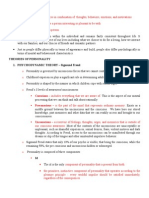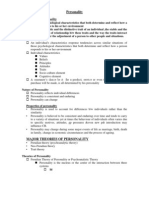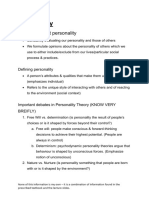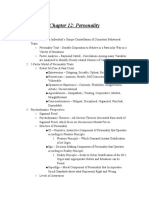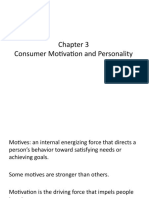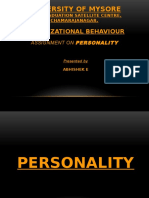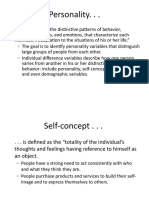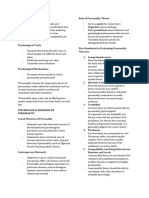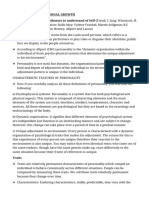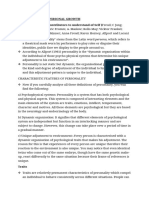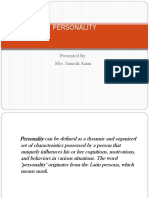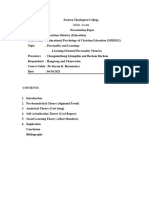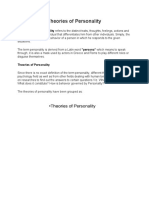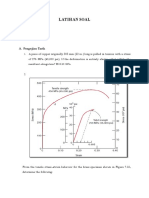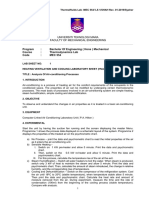0% found this document useful (0 votes)
22 views4 pagesConsumer Behavior Models
The document discusses various personality theories, including Trait Theory, Freud's Psychoanalytic Theory, and Non-Freudian/Socio-psychological Theory. Trait Theory focuses on measurable psychological characteristics or traits that influence behavior and consumer decisions, while Freud's theory emphasizes the conflict between unconscious drives and societal expectations. Non-Freudian Theory highlights the interdependence of individuals and society, asserting that social relationships play a crucial role in personality development.
Uploaded by
mansee manralCopyright
© © All Rights Reserved
We take content rights seriously. If you suspect this is your content, claim it here.
Available Formats
Download as DOCX, PDF, TXT or read online on Scribd
0% found this document useful (0 votes)
22 views4 pagesConsumer Behavior Models
The document discusses various personality theories, including Trait Theory, Freud's Psychoanalytic Theory, and Non-Freudian/Socio-psychological Theory. Trait Theory focuses on measurable psychological characteristics or traits that influence behavior and consumer decisions, while Freud's theory emphasizes the conflict between unconscious drives and societal expectations. Non-Freudian Theory highlights the interdependence of individuals and society, asserting that social relationships play a crucial role in personality development.
Uploaded by
mansee manralCopyright
© © All Rights Reserved
We take content rights seriously. If you suspect this is your content, claim it here.
Available Formats
Download as DOCX, PDF, TXT or read online on Scribd
/ 4

